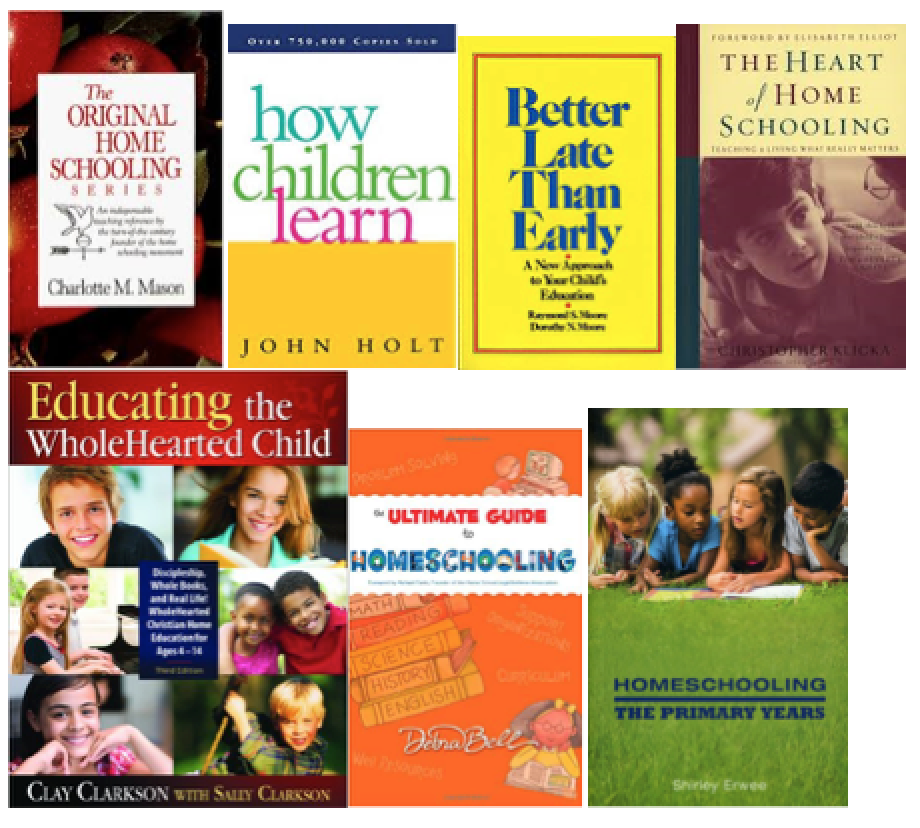Research the field before you take the leap – it is essential! Nowadays an abundance of information on home education is available. Although it is time-consuming and challenging, it is absolutely essential to read and chat widely. The time spent on research will pay its dividends in the years to come. You need not have done all possible research by the time that you start – new approaches and business constantly appear.
Read. Start your own home education library, which you will use for many years to come as reference books. A list of books recommended by homeschoolers can be found here. Read especially books by the following authors, to help you make the mind shift from “school at home” to “homeschooling”:

Ask those who know. Homeschooling expos are organised annually in various centres in South Africa. For more information see the Events page. Attend a workshop of the Pestalozzi Trust (see under Events on the website). Martie du Plessis from Dynamis offers seminars and consultations for homeschoolers. The website www.sahomeschoolers.org offers a large variety of general information and commentary on home education, as well as references to other sources and curricula. Shirley Erwee and Wendy Young supply valuable information on their website www.south-african-homeschool-curriculum.com for families with children of all ages. Cathy Koetsier, now living in England, is one of the pioneers of home education in South Africa. On her website Christian Unschooling she explains the principles and practice of unschooling. Let Marisa Haasbroek and Karin van Oostrum help you teach and your kids learn Afrikaans in the easiest way; subscribe to oolfant.com.
Chat to other people. Join Facebook groups like the SA Home Schooling Group or Educating@HomeSA, where you may meet a mom like you.
What should I choose, when I am ready to choose?
- Select your books and resources yourself. You may select your own textbooks and resources yourself. This approach is sometimes called an “eclectic” approach. Contact Lindy Malan on 072 268 2237 for all kinds of textbooks and materials for all grades, or contact Neeresh Badal at 082 560 8277. He can get hold of any book or programme for you. Oikos Family Ministries offers a wide variety of learning materials and resources for parents, especially for the unit studies approach. Willemien Kruger also provides advice on various curricula. There is also a Classical Conversations community in South Africa, if you want to follow a classical, Christian approach.
- Pre-packaged curricula. If you prefer to use a pre-packaged curriculum, you may look at, amongst others, Clonard, Impaq, Love2Learn or Theocentric Christian Education.
- Online learning. If you prefer to use an online curriculum, you may look at, amongst others, Think Digital, Educ8SA, Teneo, Syllabis or CambriLearn .
Matric. For a comprehensive discussion of the various matric options see the article on options for matricon the SAHomeschoolers website. At present homeschoolers in South Africa do mainly four kinds of “matric” or school-leaving certificates, viz the National Senior Certificate (matric), e.g. through Brainline, Impaq, Love2Learn or Theocentric Christian Education; Cambridge; the GED (Online GED or Pass GED); or the American High School Diploma (join the facebook group Homeschooling in SA toward an American High School Diploma).


